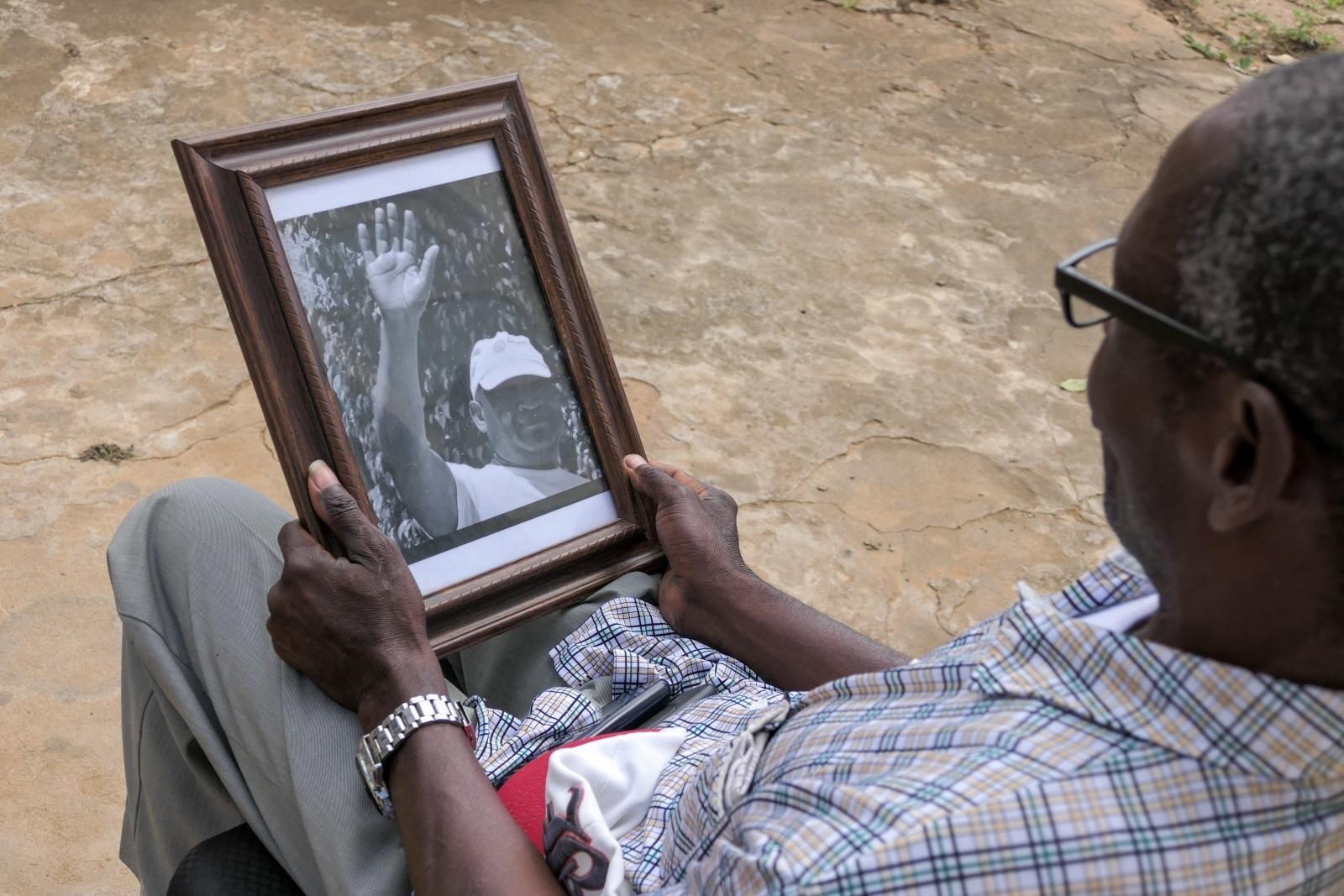Africa-Press – Mozambique. The family of activist Anastácio Matável, shot 13 times by police officers in Xai-Xai during the 2019 electoral campaign, say that justice remains to be done, and that they have not given up on finding the “masterminds” of the crime.
“The weapon belongs to the government, the people belong to the government. The weapon left the gate and the people left the gate, so there was no deviation, there is nothing strange. They left the gate legally and so did the weapon,” 65-year-old Ananias Matável, one of Anastácio’s three brothers, told Lusa in Xai-Xai.
Anastácio Matável, then executive director of the Forum of Non-Governmental Organisations of Gaza (Fonga) and trainer of election observers, died after being hit by 13 shots fired from an AK-47 type weapon and a pistol on October 7th 2019, eight days before that year’s general elections, in a case that provoked national and international criticism.
“He was killed because he was correcting the government’s mistakes,” Ananias says, standing in the exact place the vehicle in which his brother was riding came to a halt in 2019, and where he would die.
In June 2020, the Judicial Court of the Province of Gaza, southern Mozambique, sentenced six police officers to prison terms of between three and 24 years for their involvement in the murder of the activist and election observer, but the state was acquitted, on the grounds that the defendants committed the crime in their own name and in pursuance of their own agenda.
“The government did not accept responsibility. It says it knows nothing. But we are not satisfied with that,” says the brother, Anatácio’s elder by three years.
Even today, in the first electoral campaign to take place since then, Ananias Matável remembers the car “riddled” with bullets and finds it difficult to pass the place where his brother died, on the road between the city and the beach.
Ananias, who is president of the Association for Social Advice and Projects, which he founded with his brother in 1998, confesses that it was pure coincidence he was not in the car that day, when Anastácio was returning from an activist meeting.
“My brother died doing what he believed in,” he says, insisting on demanding answers: “On knowing who ordered it, the government must also take responsibility.”
For lack of answers about who “ordered” the crime, the family appealed the court’s decision, but says there has been no response so far, hence the appeal “to the honest people, those who are capable of making the matter move forward. I would say that the process is not yet resolved – it is pending”.
Of the trial, which he followed every day in court, he recalls that it was “very quick”: “Everything there was scheduled (…) Nobody was satisfied with the justice system,” is his impression.
Four years after the murder and more than three years after the court verdict, the family has still not received the compensation laid down. Even the bullet-ridden car was recovered at the widow’s own expense.
Gaza province, 380 kilometres from the Mozambican capital, is considered a Frelimo bastion. It has overwhelmingly won every election held there since the first ballot in October, 1994.
But Ananias Matável says he will not give up defending civil society and the people, recognizing that things “are changing” in Mozambique, even if “little by little”, and refusing to be “afraid”.
“I feel very good defending civil society. And I do, I defend it. I’m not afraid to speak up and put things right,” he concludes.
For More News And Analysis About Mozambique Follow Africa-Press






